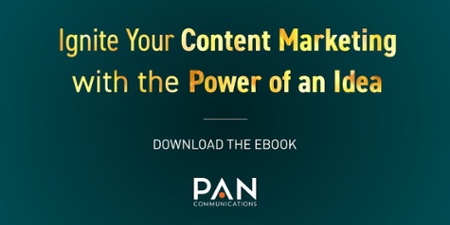Dreamforce is an event which trailblazers from all over the world anticipate. It’s four days of mind-blowing inspiration and innovation. This year, Marc Benioff’s keynote focused on connectivity, sustainability and value. To hear from someone on the ground at the show, we sat down with client Steve Kraus, VP of Marketing at Cogito, who shared why Dreamforce is such a unique show, how Benioff’s key themes were weaved throughout the conference, and where he sees CRM and customer experience headed.

Marc Benioff’s keynote discussed 3 key themes: connectivity, sustainability and value. Can you speak to these themes and share how they drove the conference?
Kraus: Salesforce does a really amazing job making Dreamforce about people. Even though it’s a show focused so heavily on technology and Salesforce itself is a technology company, there’s an emphasis on helping people learn about their impact on the environment around them, how to be part of a community and how to consider our impact on diversity and inclusion. There is a seamless connection between how we can go out in the world and do good, and how technology can help.
If you think about connectivity, across the event, there was a lot of emphasis on the connections between employees and customers – emphasizing the trailblazer theme and the idea of how you should lead, lead, lead.
Of course, there was also the tie between deeper technology and these three themes, especially with sustainability. There was a lot of talk about ethical AI, how people interact with technology and that technology isn’t ruling the world.
These 3 themes kept coming up throughout the event. Every event I went to, they seamlessly blend their customers into the story with their employees. Any session the employee started talking and then the customer would reinforce that story in terms of their business – a big piece of the show’s success.
Take away the line between your company and your customers and start to partner together to understand the best approach, product and service. Such a good job of involving their own customers – hard to tell sometimes who is a Salesforce employee and who is a customer.

In terms of CRM, what were the biggest announcements/developments at the show? How do you see these developments advancing CRM and customer experience? Any 2019 predictions?
Kraus: Many of the announcements and new developments around CRM were fairly status quo and not surprising, which is fairly standard for an industry that isn’t considered “sexy.”
One development that stood out to me was around Salesforce Einstein. Several new natural language features were announced, including a new capability called Einstein Prediction Builder. This new skill – currently in beta – crafts an intelligent rules engine that can suggest strategy through next best action. This idea of adapting in real-time and taking contextual data that exists to apply to a certain experience, is moving us into the next phase of creating superior customer experiences and showing us how to use AI for decision-making, personalizing and strategizing in the moment.
Industry leaders know what they want to do with CRM, but the hardest thing historically has been how we get there. While not the sexiest, the fact that we are moving forward – even slightly – is big and was a present theme at Dreamforce.
What were some of the trending topics you thought took center stage at Dreamforce? Any thoughts on how this year’s event differed from last year’s?
Kraus: In year’s past, it was all about self-service, automation and mobile. This year, there was a lot of talk about humanization and re-humanization, with emphasis on employees and their role in the process.
T-Mobile CEO John Legere explained how their company is upending standard business practices with a wonderfully disruptive mandate: listen to customers and give them exactly what they want.
While a fairly simple mantra, delivering humanized communication through digital interactions has been a struggle for many and I expect this will be a hot topic for 2019.
 What types of companies/technologies did you find most interesting at the show?
What types of companies/technologies did you find most interesting at the show?
Kraus: Einstein’s Prediction Builder definitely stood out to me in terms of new technology.
I walked through every booth in the technology exposition and found that a lot of companies were talking about data integration and workflow – the grassroots stuff that makes CRM function.
Ben & Jerry’s and Marriott were two of the most interesting customers at Dreamforce, both promoting a customer-first concept, which thinks about the way a customer does business with you and adapting the way you interact with them accordingly.
The concept of being a premium brand was also really important at the show, with companies placing an emphasis on how and why they want their customers to perceive them as a premium brand.
What is your favorite part about attending Dreamforce?
Kraus: Coming home…just kidding.
It’s always great to see what is new and innovative, not just from a tech perspective, but being in marketing I’m always curious to see how other companies market themselves, talk about themselves, promote their products.
I also always like to hear the customer stories. Steve Kerr, head coach of the Golden State Warriors, held a great fireside chat where he discussed the keys to his success while leading a team of professionals. His major takeaways? Be yourself.
Figure out how you work with other people – know your players and how to coach your players. These fireside chats where the speaker interacts with the audience results in thoughtful, real answers that can be applied to everyday life.
The most interesting part for me is always catching up with people I’ve worked with over the years. Many of my past colleagues work at Salesforce and it’s fun to reconnect as we’ve all gone our different ways. Dreamforce is a great way to link up and chat on where the industry is heading.

 What types of companies/technologies did you find most interesting at the show?
What types of companies/technologies did you find most interesting at the show?
